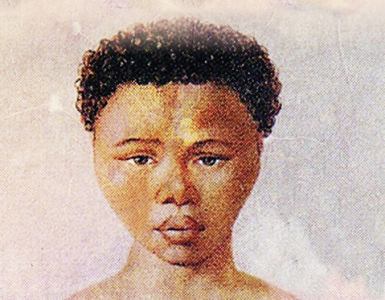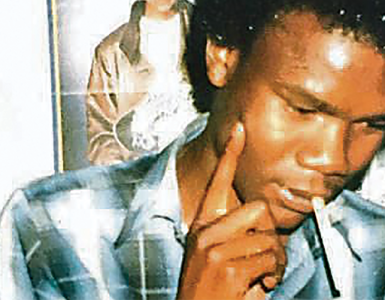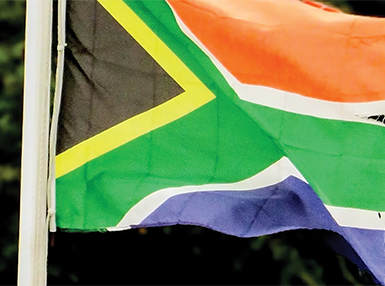IDEALS: As the year comes to a close, what can we make of the progress made in terms of making democracy work in our country?
By Jo-Mangaliso Mdhlela
If there were to be the resurrection of human bodies as spelt out in the Christian Bible, what would some of the sharpest political minds, whose existence have long gone into rest and eternity, think about the country they sacrificed their lives for?
Is this an unreasonable question to ask, in light of political and social, and cultural rot the land of Robert Mangaliso Sobukwe, Nelson Mandela, Steve Bantu Biko, and Oliver Tambo, finds itself?
The ideals of great men and women of all ages and epochs are to rebuild their country from the ills of social injustice which encompasses social, racial, economic, land dispossession, and all other human ills visited and imposed on the weakest in society by the oppressive and crudely powerful men who run political affairs of countries, turning them into egalitarian societies.
If we take a closer look at our country today, South Africa or Azania, and examine its current status in detail, it will be easy to come to the conclusion that such ideals as espoused by the greatest leaders who populated this country, are diminishing like a mist in a blazing heat of a scorching sun light.
An ideal that danced in the heart of every South African or Azania has always been the deliverance of a prosperous country from which countrymen and women would be taken care of by incorruptible men and women whose duties it is to live up to the highest standard of moral probity.
Common good explained, refers to all that benefits the general welfare of all, or a public good that benefits society or is a shared life’s dividend beneficial for the many rather than the few in society or country.
In fact, democracy as envisioned by our forebears, and some who were Athenian Greeks, would entail a system in which the “rule by the people” would be the order of the day, and which all would embrace the concept of “equality before the law”
Democracy, well understood, is not abundance to kings and queens and presidents only; the abundance should accrue to all, not in name only, but in action that touches the lives of all, and has to be determined not only by the leaders, but by the will of the people.
To come to the nub of the matter, one is struck by the extent to which the country has degenerated since the momentous April 27, 1994 moment, in which the black leadership ascended political power.
As the year comes to a close, what can we make of the progress made in terms of making democracy work in our country.
The year ends with the Economic Freedom Fighters (EFF) holding a three-day elective conference at Nasrec Expo Centre, Soweto, Johannesburg.
What is strikingly surprising, and in contradiction to democratic ethos, the 11-year-old party, formed on July 26, 2013, has had as its president, Julius Malema, elected unopposed for all the time the party has been in existence.
Malema wields great, almost unfettered political power, and the fact that at every elective conference, he gets elected “unopposed” should be worrying, including those who are members of his party.
No president of an organisation in a democracy, if we accept that as South Africans we should embrace democracy in its totality, should be elected “unopposed”.
The principle of equality is that all should be treated equally, and that there should be no exception that elevates presidents and kings and queens to a higher pedestal.
First, let us explore characteristics of dictatorship in order to clearly understand what the offerings of democracy are.
Dictators, for their own survival, require force or fraud to maintain or gain political power.
In fact, in the end, dictators tend to become enmeshed into the persona of the party they lead, and become synonymous with it, so that it becomes difficult to separate the party from its leader, with the two becoming one and the same.
What dictators enjoy immensely, is to deploy in their leadership tactics of propaganda, a characteristic that promotes their own persona, rather that of an organisation.
If you consider that Hitler’s persona was more enhanced and pronounced than the party he led, Nazi Party, then this ought to be a clearer indication of how dictators would wish to have things surrounding their persona determined. They would prefer to always overshadow the party’s personality.
Dictators enjoy micro-managing, almost single-handedly, control all aspects of the party by themselves, except the mundane which could be allocated to the rank-and-file, and almost giving a cold shoulder to those they perceive to be a threat to their unfettered leadership style.
If you consider how Malema, in a press conference convened late last November, berated some unnamed leaders within his organisation for disloyalty, frothing in the mouth, and visibly angry, and with his eyes full of venom, then you will appreciate the message conveyed here.
Aith all his loyalists nodding their heads, in sympathy with his angry sentiments, he unleashed his venom on those he perceives as “disloyal” to the party’s cause.
A troubling question is: Why would Mbuyiseni Ndlozi want to stay in an organisation whose leader abuses him, and publicly ridicules him?
Obliquely, yes. But the antipathy is all there for all to see. Ndlozi can no longer call EFF his political home.
For Ndlozi, who holds a PhD qualification, the world of academia beckons, and the adversity that engulfs him, must now be tempered with light that will prevail when he parts ways with the EFF, and the leader who torments and disrespect him.
Ndlozi should not allow the tyranny of dark politics to continue to dim his world and prospects of new beginnings outside the confines of the EFF.
What about the MK Party, under the leadership of Jacob Zuma, the leader who caused the country to implode through his unconventional way of governance.
And we need to ask, what elective conference conferred on him the right to lead the MK Party?
The answer is that Zuma and his “leadership comrades” at the top do not have a mandate to lead the party – their leadership is imposed.
In his own words, at a media conference in Johannesburg recently, Zuma questioned the wisdom of elective conferences, suggesting that over the years he had not seen any discernible value attached to them, and argued, to great applause, his party would resort to “consultative conference” for better outcomes.
Is it not strange and concerning that the idea of a conventional method of democratically electing leadership is subverted by one man with a political chequered and controversial past, and a warped understanding of democracy?
What ought to be even more worrying is that Zuma’s stance is not causing political ripples, and condemnation from society and the media, that an unelected member of the country’s political party could represent his party without being duly elected.
With all its all challenges of governance, the ANC, by accepting a “near defeat” at the polls of May 29, must be commended for remaining democratic and accepting the outcomes of the elections that gave the Madiba party an unimpressive 40% “victory”, stripping them the veneer of invincibility, and hopefully paving way for a renewed ANC in the next national and provincial election of 2029.
Also, impressive is the return of the PAC to mainstream politics, manifested through the role the Robert Mangaliso Sobukwe party must play in overseeing the ministry of land reform and rural development.
Mzwanele Nyhontso, the PAC president, was appointed on July 3 as the first opposition politician to hold this office.
The ministry is responsible for the Department of Land Reform and Rural Development, among others, to help return the land to its rightful owners. Whether that happens, we will know at the end of Nyhontso’s tenure in 2029.
In the end, we all must wonder what the forebears, and great leaders this country has produced, thinking about where the country is headed to.
· Mdhlela is an independent journalist, an Anglican priest, ex-editor of SA Human Rights Commission journals
Comment
HANI INQUEST: HOPE FOR FINAL CLOSURE
The release and subsequent deportation of Januz Walus, who served almost three decades in jail after he was convicted of killing South African Communist Party leader, Chris Hani, has left an indelible and painful pain in the hearts of his family and freedom loving people after he refused to shed a detailed account regarding the dastardly murder.
Hani, who was the leader of the African National Congress’ military wing, Umkhonto we Sizwe and the general secretary of the South African Communist Party, was shot outside his home in Boksburg, east of Johannesburg, in 1993. Walus, 71, spent over 28 years in jail after he was convicted and initially sentenced to death for the killing. He was released on parole following a ruling of the Constitutional Court in 2022.
Clive Derby-Lewis, a former politician who was sentenced together with Walus for the murder, was released on medical parole in 2015. He died from cancer in 2016. The two were initially sentenced to death but their sentences were commuted to life imprisonment when South Africa became a democracy and abolished the death penalty.
Announcing Walus’ deportation a week ago, Minister in the Presidency, Khumbudzo Ntshavheni, said the Polish government paid all his expenses to his homeland. ANC secretary-general, Fikile Mbalula, said while they respected the court’s decision, Walus’ deportation without a full confession was an injustice.
Both Walus and Derby-Lewis should thank South Africa’s democratic policies as they would have been executed a long time ago. Instead of helping the Hani family, in particularly, to find closure and reveal all the details relating to this premeditated murder, they showed no remorse. They were denied amnesty by the Truth and Reconciliation Commission after they failed to prove that the murder was politically motivated.
Derby-Lewis, who was released on medical parole after serving 22 years, died in November 2016 along with the secret. Walus is currently in Poland preparing to enjoy a happy Christmas with his family after nearly 30 years. He flew to his homeland without revealing the details surrounding the planning and reasons behind Hani’s assassination. The ANC-led government, after denying him parole for many years with the hope that Walus would crack, were finally dealt a legal blow when the Constitutional Court, guided by the country’s laws, ordered that he should be released as he had served his time.
Although belated, we are encouraged by the latest announcement by the government to set up a comprehensive inquiry into Hani’s murder. We hope this inquiry would help the Hani family and his comrades in the SACP and ANC to establish the truth and finally, closure. The decision to release Walus on parole was taken by the highest court in the country and the government had always opposed his release.
The announcement of his deportation was met with criticism by the SACP which believes that Walus had never shown remorse for Hani’s death, including who ordered it. The ANC has called for a full inquest into Hani’s death.































